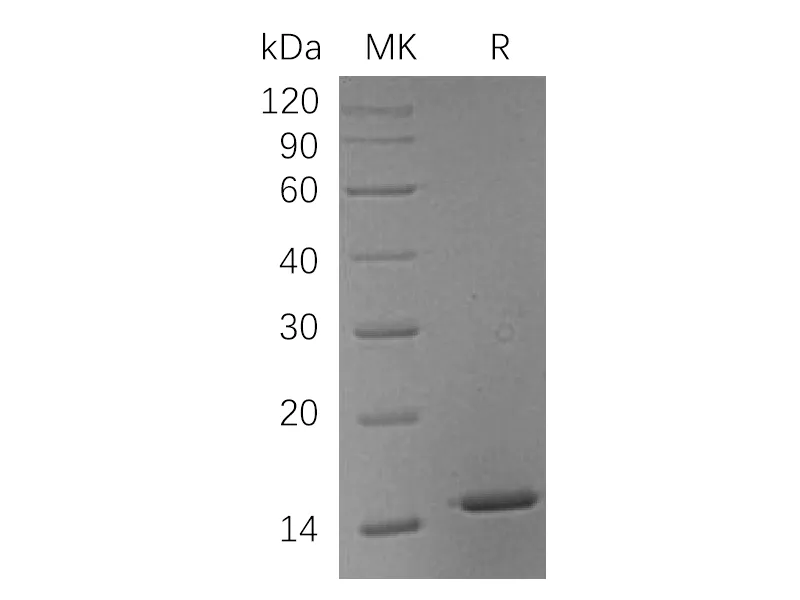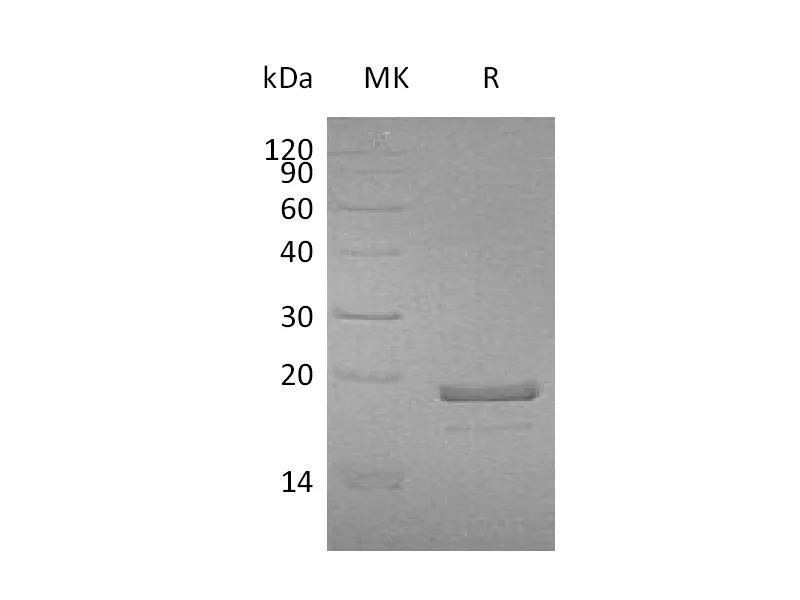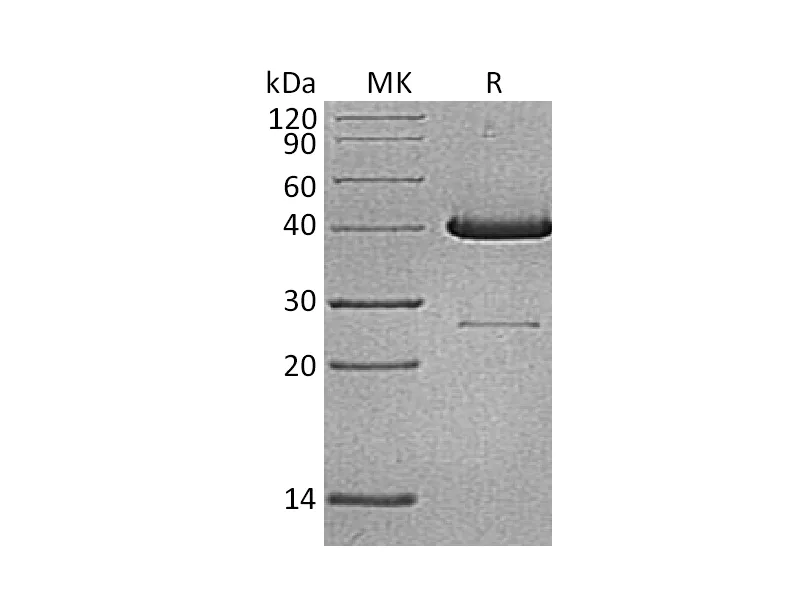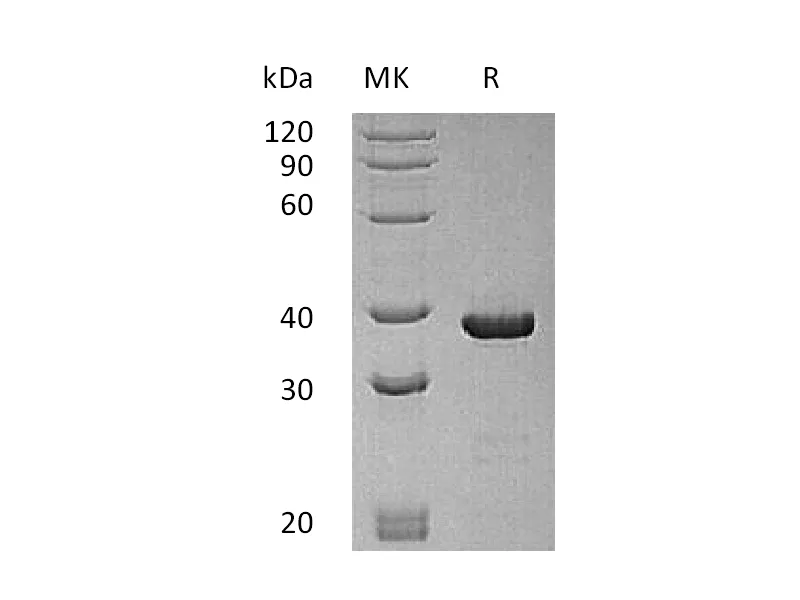| 产品名称 |
Recombinant Human IDO (N-6His) |
| 英文名称 |
Indoleamine 2,3-Dioxygenase/IDO/INDO |
| 纯度 |
Greater than 95% as determined by reducing SDS-PAGE |
| 内毒素 |
<1 EU/µg as determined by LAL test. |
| 蛋白构建 |
Recombinant Human Indoleamine 2,3-dioxygenase is produced by our E.coli expression system and the target gene encoding Met1-Gly403 is expressed with a 6His tag at the N-terminus. |
| Accession |
P14902 |
| 表达宿主 |
E.coli |
| 种属 |
Human |
| 预测分子量 |
46.8 KDa |
| 制剂 |
Supplied as a 0.2 μm filtered solution of 20mM Sodium Acetate, 150mM NaCl, 20% Glycerol, pH 4.5. |
| 运输方式 |
The product is shipped on dry ice/polar packs.Upon receipt, store it immediately at the temperature listed below. |
| 稳定性&储存 |
Store at ≤-70°C, stable for 6 months after receipt.Store at ≤-70°C, stable for 3 months under sterile conditions after opening. Please minimize freeze-thaw cycles. |
| 复溶 |
| 分子别名 |
| Indole 2;3-dioxygenase; Indoleamine 2;3-dioxygenase 1; IDO-1; IDO1; IDO; INDO |
| 背景介绍 |
| Indoleamine 2,3-dioxygenase (IDO) is a heme enzyme that initiates the oxidative degradation of the least abundant, essential amino acid, l-tryptophan, along the kynurenine pathway. This protein is normally expressed in the dendritic cells, macrophages, microglia, eosinophils, fibroblasts, endothelial cells, and most tumor cells. IDO activity is associated with immunosuppression and immune attenuation. Several studies showed that IDO can contribute to immune escape when expressed directly in tumor cells or when expressed in immunosuppressive antigen presenting cells such as tolerogenic dendritic cells or tumor associated macrophages. IDO also is a promising therapeutic target for the treatment of cancer, chronic viral infections, and other diseases characterized by pathological immune suppression. |
注意事项
本司产品仅用于科研,不用于临床诊断和治疗




